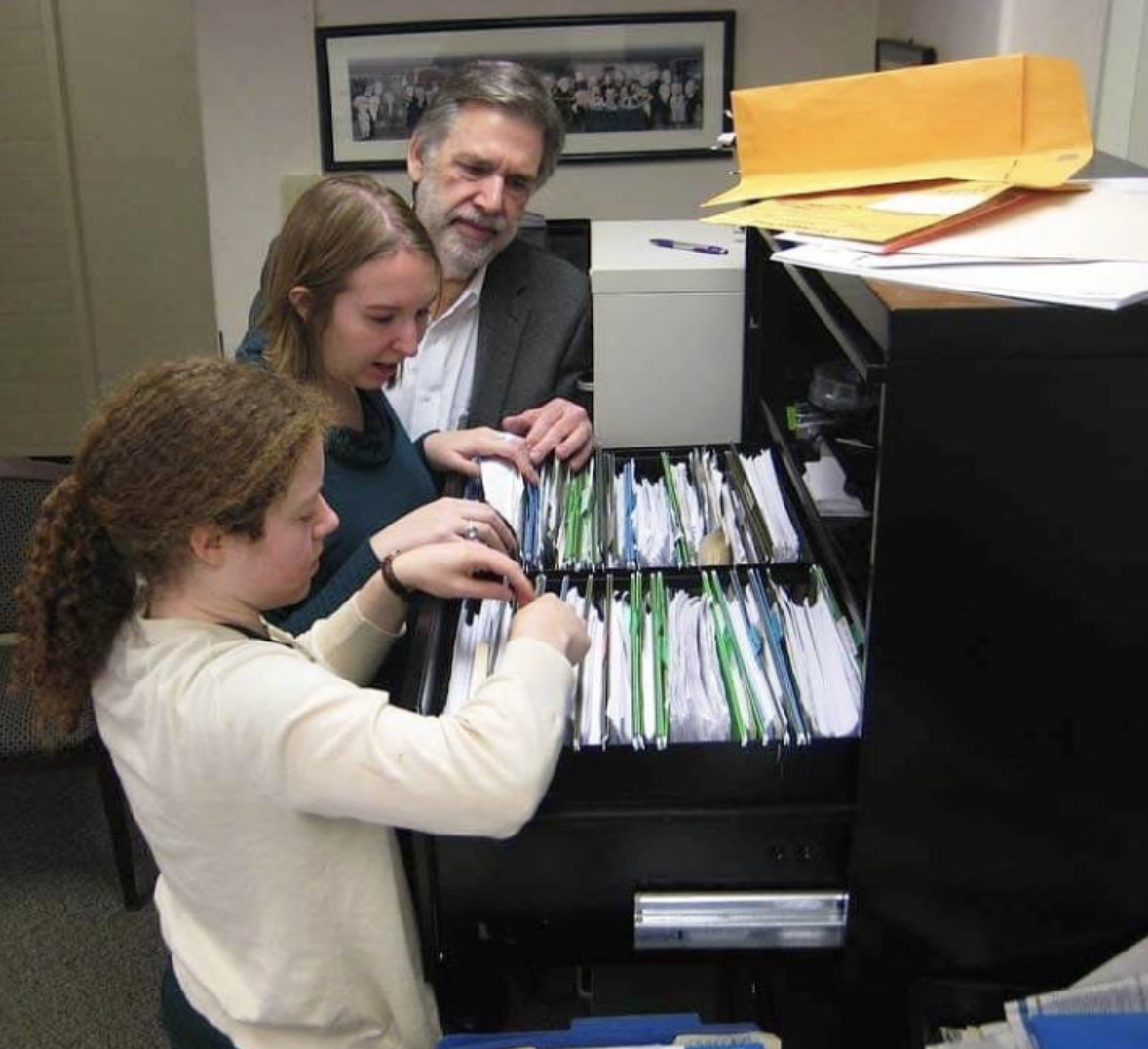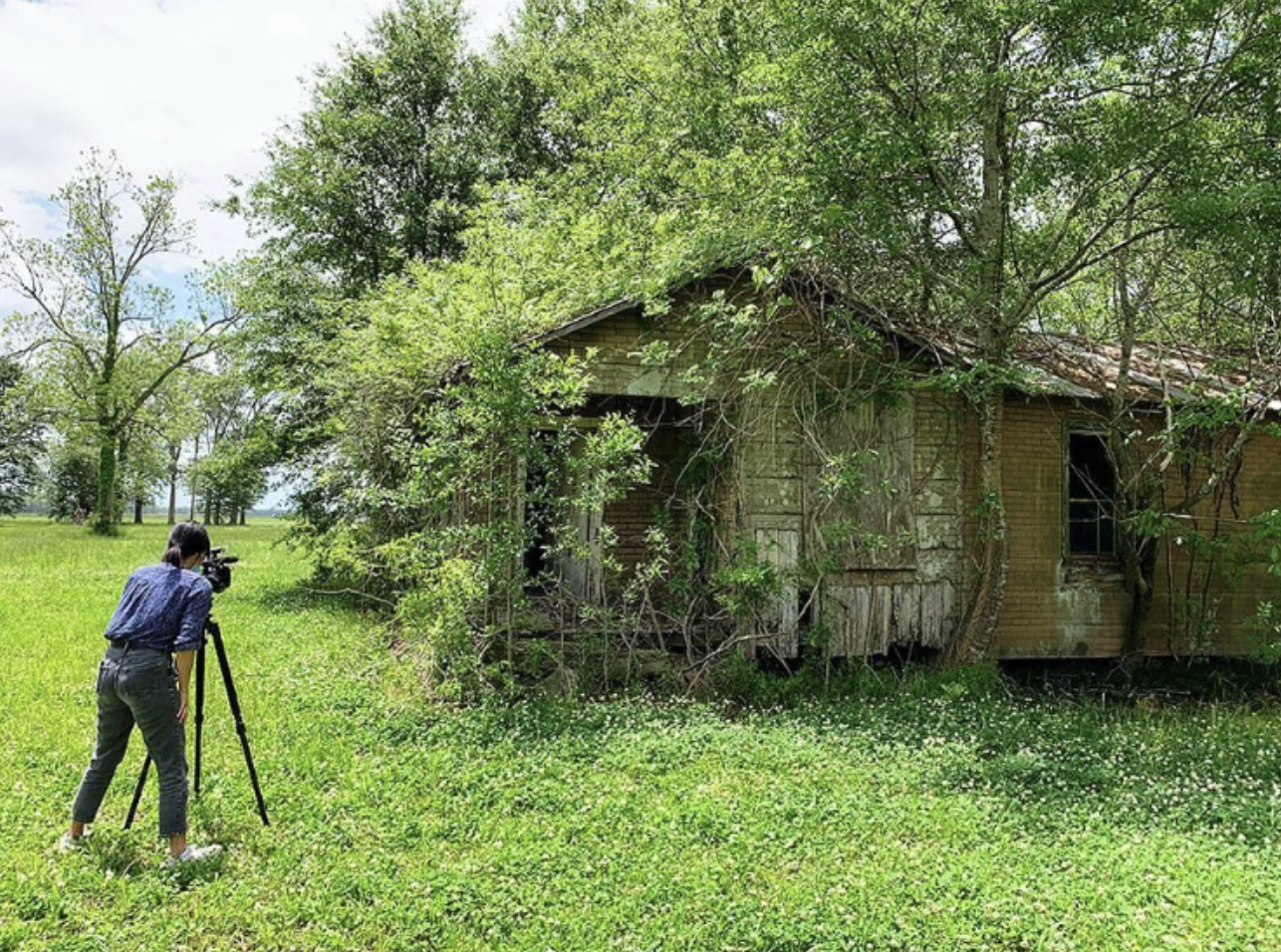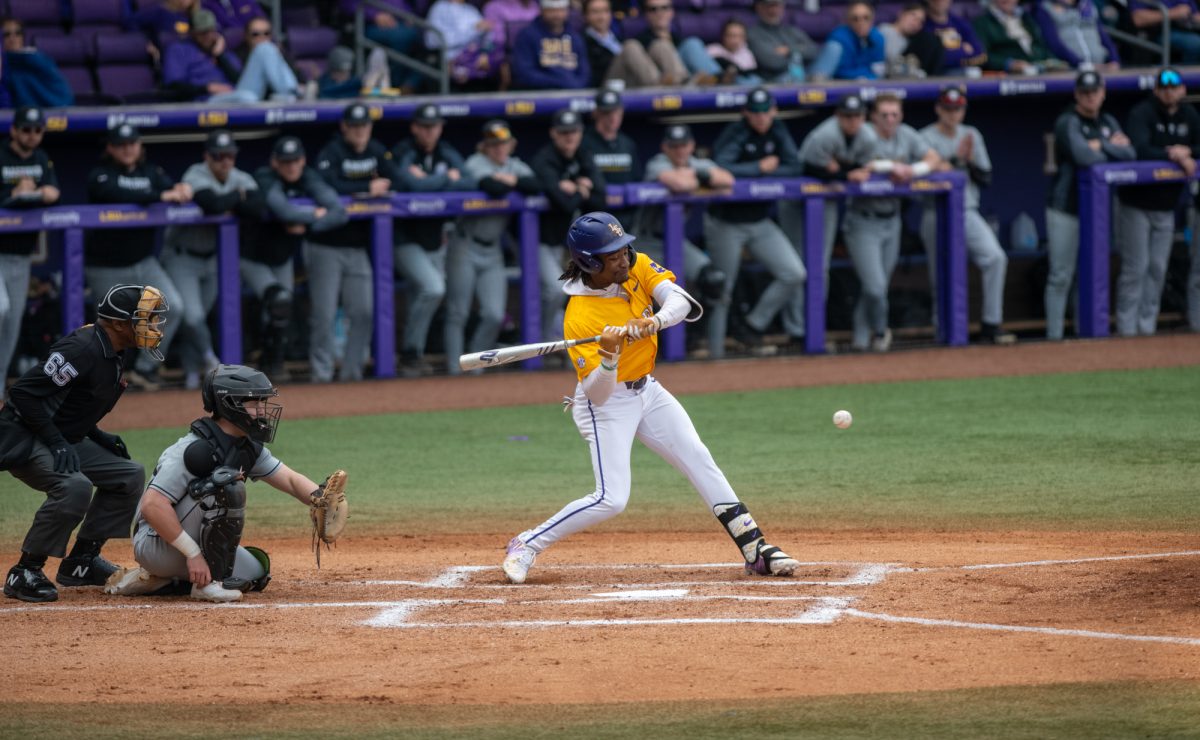Current and former members of the LSU Cold Case Project gathered to celebrate the project’s 15th anniversary and premier the very first Cold Case podcast.
The Cold Case Project has investigated over 160 unsolved crimes, with detailed stories on 36. Investigations focus on murders by the KKK and police officers during the 1960s-1970s. The entire catalog of the cases along with all the evidence they uncovered is available online at lsucoldcaseproject.com.
The class is part of the Manship School of Mass Communication and allows Manship students to hone their skills in investigative journalism. Students investigate crime scenes, conduct interviews, collect and analyze FBI documents and write stories about civil-rights-era Cold Cases.
Classes have been recognized for nine outstanding stories since 2019, including awards from the Louisiana Press Association, the Society for Professional Journalists Region 12 competition and the Hearst Awards for student journalists.
This year three LSU Cold Case students, Myracle Lewis, Mel Gabor and Birdie O’Connell, were recognized as finalists for their reporting in the Region 12 student awards competition run by the Society of Professional Journalists.
“It’s a lot like a group project but instead of only one person contributing, everybody is working hard together so we can accomplish so much,” Gabor said.
With a class of 15 this semester, every student has a unique role in each investigation. Students Jariel Christopher and Lindsey Foles just returned from a trip to New Orleans to interview a civil rights leader from the 1960s for an upcoming story.
The projects are divided into multimedia format and broken up into multiple parts. Maria Pham, a videographer for the Cold Case Project, shared how she was able to organize the abundance of information collected. She interviewed a daughter of one victim and discovered the impact of solving these cases.
“I know they will serve a really good purpose in the second part,” Pham said. “It’s kind of just knowing the themes of each part and sorting these quotes out. I wanted to lean more into letting these people tell their story.”
The project started in 2009 with a much smaller class size of only two students. Stanley Nelson, currently an adjunct professor running the Cold Case Project, played a key role in kicking off the Cold Case Project through the investigations of Ferriday shoe shop owner Frank Morris, one of the first LSU investigations.
The investigation resulted in the naming of a live suspect in 2011 and the calling of a grand jury to hear the case.
On Dec. 10, 1964 Frank Morris, a 51-year-old Black shoe shop owner, was murdered by KKK members in a fire, targeting his shop. The two men accused were Arthur Leonard Spencer and Coonie Poissot. Interviews with their families revealed that they had confessed to the crimes years after the fact and evidence directly connected them to the crimes; however, when a grand jury was called, they decided not to take any action and no arrests were ever made.
Nelson’s work on the murder of Morris resulted in him being recognized as a Pulitzer Prize finalist.
Another notable investigation made by the Cold Case team was the murder of four Black men by Robert “Shotgun” Fuller. Fuller, who was a statewide leader of the Original Knights of the Ku Klux Klan, claimed that he was acting in self-defense when he killed four men and injured one other.
The all-white grand jury refused to indict Fuller, choosing instead to indict the lone survivor for the attempted murder of Fuller. Interviews and new documents found by the LSU Cold Case team revealed damning evidence, that if uncovered at the time, would have undoubtedly led to an indictment of Fuller.
The families of those impacted by tragic, unsolved crimes are often hesitant to permit students to investigate the crimes. In the past, law enforcement has brushed over many of these cases, leaving much to be desired. Many family members do not want to put themselves through added trauma just to be left with the same results.
Nelson shared that the daughter of Morris, Rosa Williams, told him that there was no resolution in the case since he passed in 1964.
“I don’t know if we can resolve this case,” Nelson told Williams. “I have no idea what we can do, but I can promise you one thing, that we are going to try, and the other thing is that you’re not going to be in the dark anymore. We’re going to write stories, and I’m going to make sure you see them.”
As they delved deeper into the story of Morris, going as far as naming a suspect and holding a grand jury to try the accused, Williams finally got something her family has never had. Closure.
Now, hundreds of living relatives of individuals whose murders have been unsolved can go onto the cold case website and see photos, interviews and comprehensive stories about their loved ones for the first time.
Fifteen years of justice: How an LSU class has investigated over 160 unsolved crimes
By Carl Dexter
December 4, 2024
Stanley Nelson, Marylee Williams and Olivia McClure comb through some of the LSU Cold Case files during work on campus in 2014.
More to Discover









